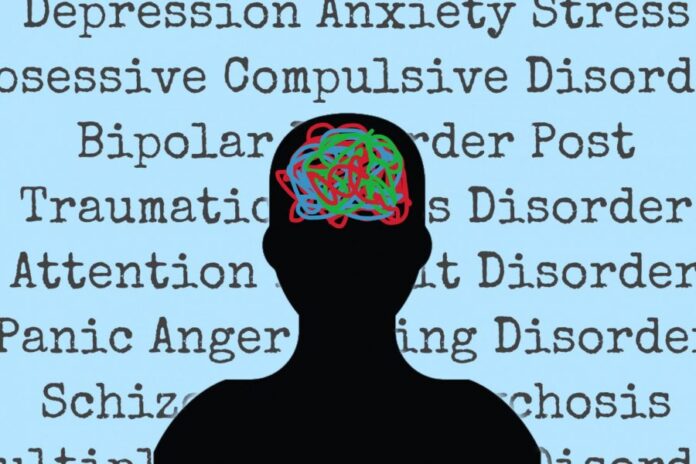Your mental health refers to your psychological, emotional, and social well-being. Your mental health condition can influence how you think, act, feel, and cope with life issues. It also determines how you make choices, relate to others, and handle stressful situations.
Your mental health impacts every area of your life directly and ripples into everything you do, think, or say. Ensuring optimal mental health can help you to
- nurture healthy relationships;
- have self-love;
- handle daily stresses of life;
- be productive;
- be motivated, healthy, and physically active;
- set goals and achieve them; and
- realize your full potential.
Today, mental health is more crucial than ever in uncertain times. Here are ten things you can do to maintain your mental health:
Be Gentle With Yourself

To maintain your mental health, you must learn to practice self-love and know your limits. Don’t push yourself too hard. Don’t overstress yourself with unrealistic goals. Trying to achieve perfection is elusive and might be something you can never achieve.
Only plan and do what you can manage. Setting goals that are too high may lead to sadness, anger, frustration, and self-loathing, which will affect your thought pattern. Instead, set short-term goals as you constantly evaluate them. Reachable goals will motivate you, inspire you to act, and enable you to focus. Realistic expectations will allow you to strategize sincerely and work more calmly.
Suppose you’re dealing with addiction. Breaking the cycle will take a long time because it happens gradually. You might need to check into rehab to deal with your addiction effectively. You can visit online resources such as https://www.jacksonhouserehab.com and others to learn how you can move past your addiction through rehab.
Take Care Of Your Body
A healthy body promotes a healthy mind. Eating a balanced diet and maintaining a level of fitness will significantly impact your mental health. An active mind combined with a healthy lifestyle is fundamental to your physical and psychological well-being.
Incorporating even a couple of hours of physical exercise into your weekly schedule can improve your self-esteem and mental alertness. A diet rich in essential nutrients combined with regular exercise will ensure your physical and mental well-being. And most importantly, don’t forget to hydrate.
Getting Enough Sleep

Sleep is essential to rest the body and mind. Maintaining a regular sleep schedule allows your body to reset daily, enabling optimal brain function. Sleep deficiency, however, can make you cranky, less focused, and skews your ability to control your emotions. Over time, this can develop into a serious mental health condition. Mental disorders such as anxiety or depression resulting from sleep deficiency may further cause sleep disruption.
To maintain a healthy sleep cycle, make sure you have a regular sleep schedule. Make your bed more comfortable in a bedroom free from noise and light. Keep your room between 60 to 67 degrees Fahrenheit (15.6 to 19.4 degrees Celsius). Limit the use of stimulants like coffee and soft drinks before going to bed. Stay away from gadgets like your phone, computer, or TV at least 30 minutes before bedtime.
Do Activities That You Enjoy
Engaging in activities you enjoy can help maintain your mental health. You can participate in group or personal activities such as sports, playing music, dancing, or art and crafts. Whatever your preference, when you’re happy and relaxed, you can control your stress levels. In addition, group activities, can improve your relationship with others.
You can even take your newfound hobby a notch higher by bringing your imagination to life. Stimulate your curiosity by trying new things to bring out your inner child. Try new recipes, games, projects, or travel to a new place. Challenge yourself by climbing a hill or going zip-lining. Expand your horizon. Be spontaneous. These might seem simple, but they can help you achieve better mental health.
Learn To Cope Healthily

Life can get stressful in all directions. From relationship problems to demanding jobs, it’s normal to experience situations that affect your moods. But when stressful situations become overwhelming and interfere with your well-being, learning to cope in a healthy way is essential to help you get through the difficult times.
Coping with depression, stress, or anything that compromises your mental health can be difficult. It’s easy to try and relieve stress with narcotics or alcohol. Though they may offer short-term relief, their long-term effects are worse.
To stay afloat and conquer situations that can affect your mental health adversely, you should develop coping skills. These skills will help you deal with, minimize, and tolerate stressful situations. They’ll not eradicate the challenges but will help you overcome difficulties and help you function amid the challenges. Coping skills can include
- taking deep breaths,
- replacing negative thoughts with healthy ones,
- maintaining healthy boundaries and relationships,
- Aromatherapy, and
- doing positive activities that calm you down.
Developing these habits can help you cope with stresses no matter what they are. Sometimes, calming your anxieties and your mind can help you stay grounded when you’re facing your stressors.
Quiet Your Fears
Many fears are born of vain imaginations. If the fear of failure, an uncertain future, the unknown, and similar situations play over and over in your mind, they can lead to distress and anxiety. While fear is an impulsive response to some situations, it can turn into disorders like panic, anxiety, and depression when it blows out of proportion.
When distressing thoughts that cause fear start to fill your mind, take time to calm down. Instead of avoiding your fears, confront them. You can replay the situations that cause fear in your mind by thinking of the worst-case scenario.
Live each day at a time and cross the bridge when you get there. Change your mindset by turning bad thoughts into happy endings. Shifting your thought patterns to more positive things and painting better pictures will significantly benefit your mental health. Confronting your fears will liberate your mind and do wonders to your mental health.
Go Off-Grid In Planned Intervals

In today’s fast-paced world, where traffic, noise, and technology constantly inundate our lives, finding moments of solitude and mental peace can be a daunting task. The relentless hustle and bustle can lead to mental exhaustion, confusion, and a perpetual sense of hyperactivity. However, there is an antidote to this modern malaise – going off-grid at planned intervals.
Taking a break from the relentless demands of contemporary life by disconnecting from technology and immersing oneself in nature can be profoundly rejuvenating. It’s a chance to step away from the chaos, slow down, and reconnect with the inner self. When we venture into the wilderness, we embrace the simplicity and serenity of nature, providing a respite for our weary minds, far from the constant buzz of urban life.
This off-grid experience offers a plethora of benefits for our well-being. It provides an opportunity to clear our cluttered minds, allowing thoughts to flow freely and undistracted. Moreover, the healing power of nature works wonders on our physical and mental health, offering much-needed rejuvenation. By taking these breaks, we recharge our mental batteries, fostering clarity, resilience, and a deeper connection to the world around us.
Incorporating off-grid intervals into our lives is not just an escape; it’s a deliberate step towards mental and physical rejuvenation, a way to rediscover the simplicity and goodness of existence amidst the chaos of modernity. In this pursuit of well-being, organizations like We Charity also recognize the importance of reconnecting with nature and inner peace.
Be Social
Human beings are born, learn, grow, and work in a society. It thus becomes the backdrop of life. Even introverts crave social interaction once in a while. Interacting with people can heighten your mood and make you happier.
Being social is good for your brain health because it gives you a sense of security and belonging. It makes it easier for you to confide in others. It also boosts your self-esteem and empathy and enables you to form healthy relationships.
Additionally, social interactions provide a level of comfort. Surrounding yourself with friends and family can help you put things into perspective and give you fresh insights about life. Having close family and friends’ ties can help improve your general life satisfaction, thus making you mentally and physically strong.
Practice Gratitude And Charity

Gratitude is the affirmation of the good things you have in life. Expressing gratitude can boost the feel-good hormones in your brain, which can help improve your mood and give you feelings of happiness. Your brain is rewired when you acknowledge even the most minor things in your life.
You can practice gratitude by journaling the things you are grateful for and replaying them in your mind. You can also make someone who has been a blessing to your life feel special by gifting them or sharing a nice meal. Gratitude will lessen feelings of guilt and shame and change your perception of life.
You can also give back to society by volunteering your time and energy or participating in charitable activities. Constantly reminding yourself about the good things in your life and lending a helping hand can give you a sense of well-being.
Quiet Your Mind
Moments of silence can calm your brain and relieve tension, which can help relax your whole being. Silencing your mind can improve your ability to focus and think more clearly. As your comprehension increases, you’ll become more aware of the world around you as you quiet your thoughts. It’s been found that two minutes of meditation is more calming than listening to relaxing music.
You can set aside a few minutes daily to quiet your mind and be alone with your thoughts. Turn off any electronics or go to a place where you can isolate yourself and meditate for 30 minutes to an hour.
Conclusion

Mental illness has many faces, including depression, desire to isolate or withdraw, excess stress, and inability to sleep or cope with life. It doesn’t discriminate and can affect both the young and old equally. When you feel overwhelmed, don’t try to fix it on your own; seek professional help.
Seeking help is a sign of strength and not weakness. By taking that step, you’ll get insights and suggestions from professionals on how to deal with your problem. You’ll also have access to treatment that will improve your situation. You’ll get the answers you’re looking for as you get support from people who have your back.









